Rylan Schaeffer

Resume
Research
Learning
Blog
Teaching
Jokes
Kernel Papers
Streaming Inference for Infinite Feature Models
Authors: Rylan Schaeffer, Yilun Du, Gabrielle Kaili-May Liu, Ila Rani Fiete
Venue: ICML 2022
Summary
If you’re interested in continual learning, lifelong learning, unsupervised learning on streaming data or neuroscience, come to our #ICML2022 talk & poster Streaming Inference for Infinite Feature Models today! Joint with @du_yilun @FieteGroup 1/12
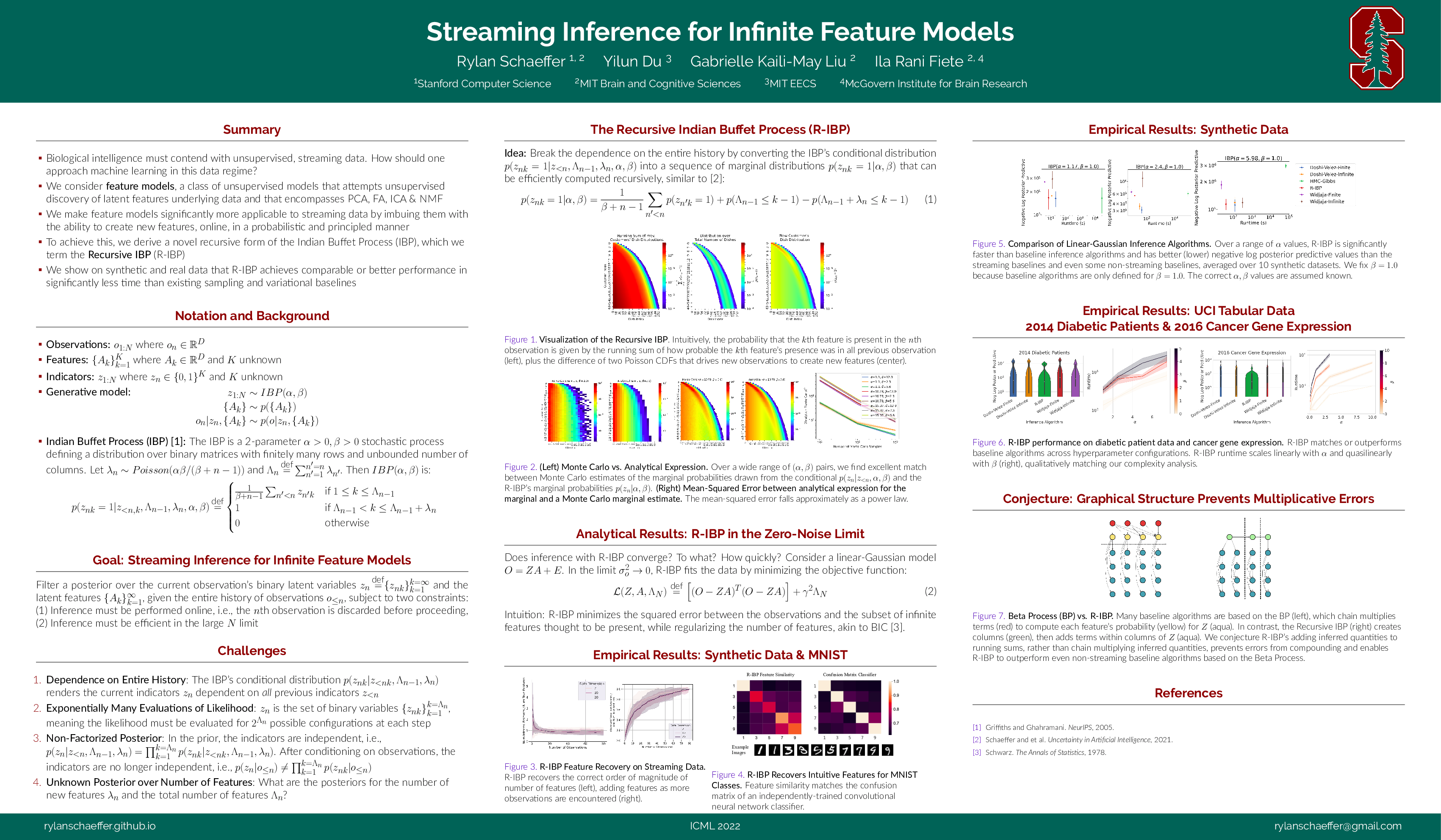
Motivation: Biological intelligence operates in a radically different data regime than AI, in that biological intelligence must contend with data that is 1) unsupervised, 2) streaming and 3) non-stationary. How should one approach learning in this data regime? 2/12
In this work, we set aside non-stationary and specifically ask how to use feature models (a widely-used family of unsupervised learning algorithms that includes PCA, FA, ICA, NMF) on streaming data 3/12
On streaming data, using a preset fixed number of features results in an inability to model the data! How can one define a learning algorithm that grows in representational capacity as necessitated by the stream of data? 4/12

We enable any feature model to add features, as necessitated by incoming data, using Bayesian nonparametrics. Specifically, we derive a novel recursive form of the Indian Buffet Process designed specifically for streaming data: 5/12

Our Recursive IBP is exact for the stochastic process, as shown by close agreement (visually and numerically) between our analytical derivation and Monte Carlo estimates 6/12


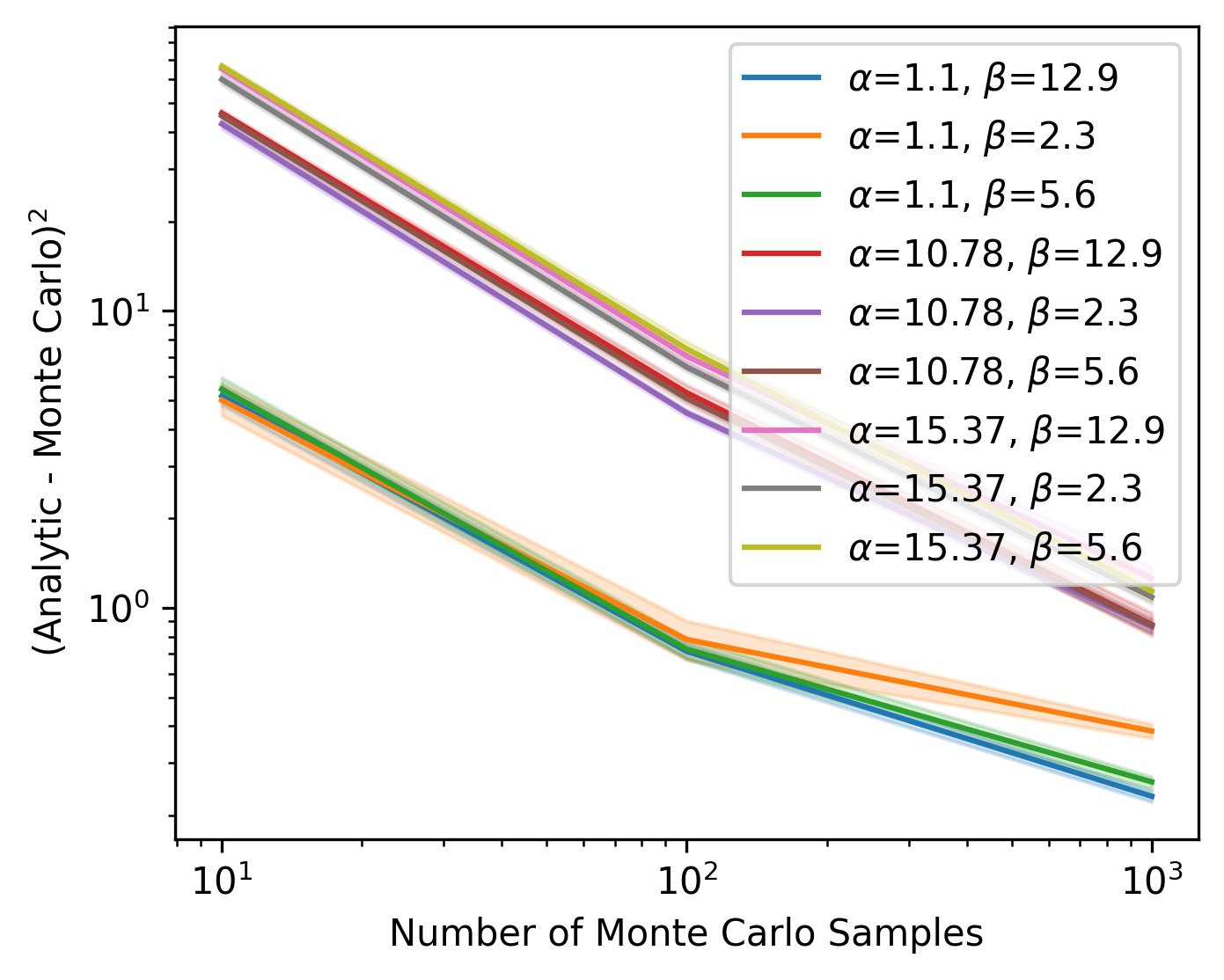
We show analytically that the Recursive IBP behaves in an intuitive manner: it tries to learn the subset (Z) of infinitely many features (A) that best explain the data, while penalizing the number of used features (Lambda_N) 7/12

On synthetic data, when hyperparameters are known, the Recursive IBP achieves equal or better performance than baselines (even non-streaming baselines), in significantly less time 8/12
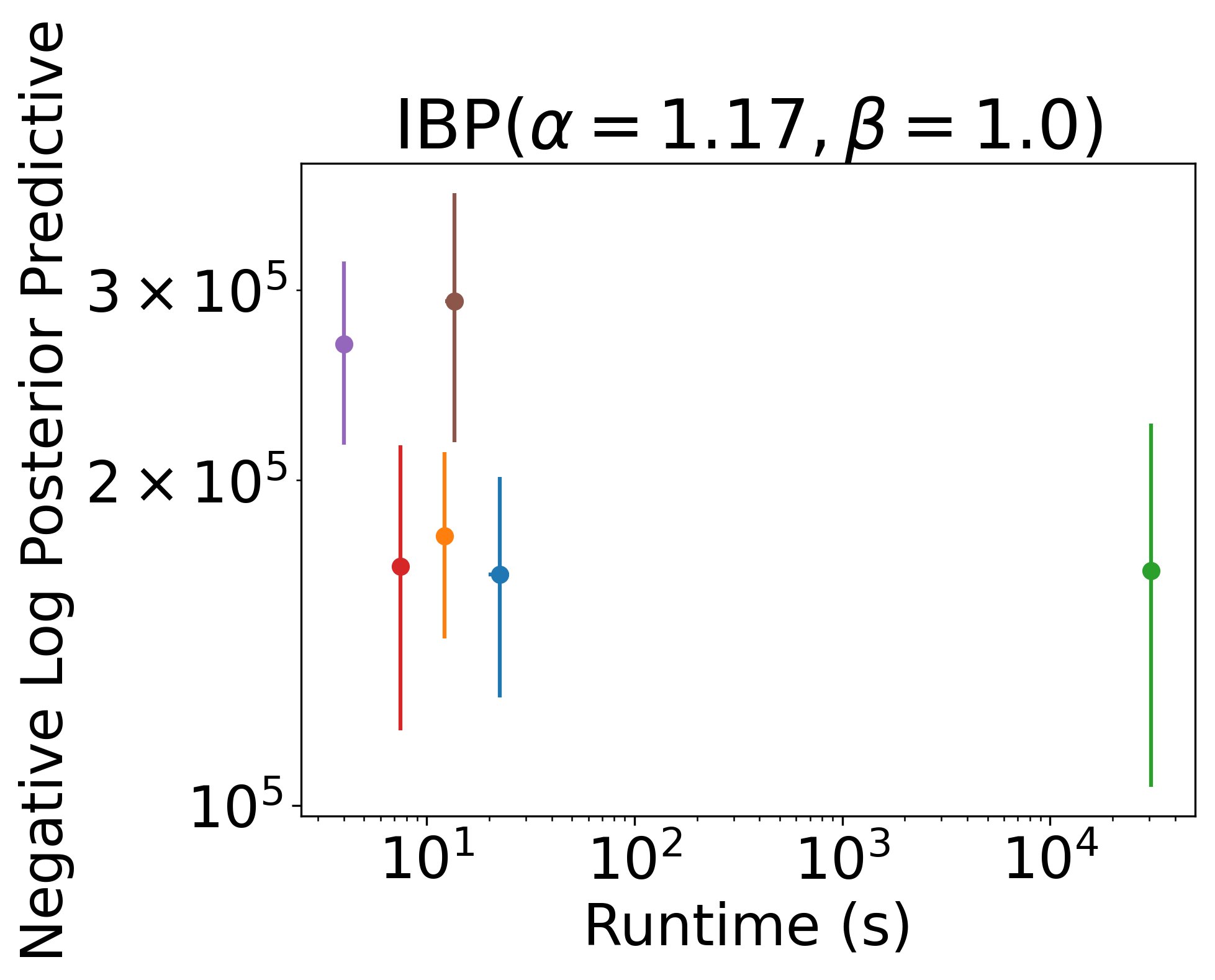
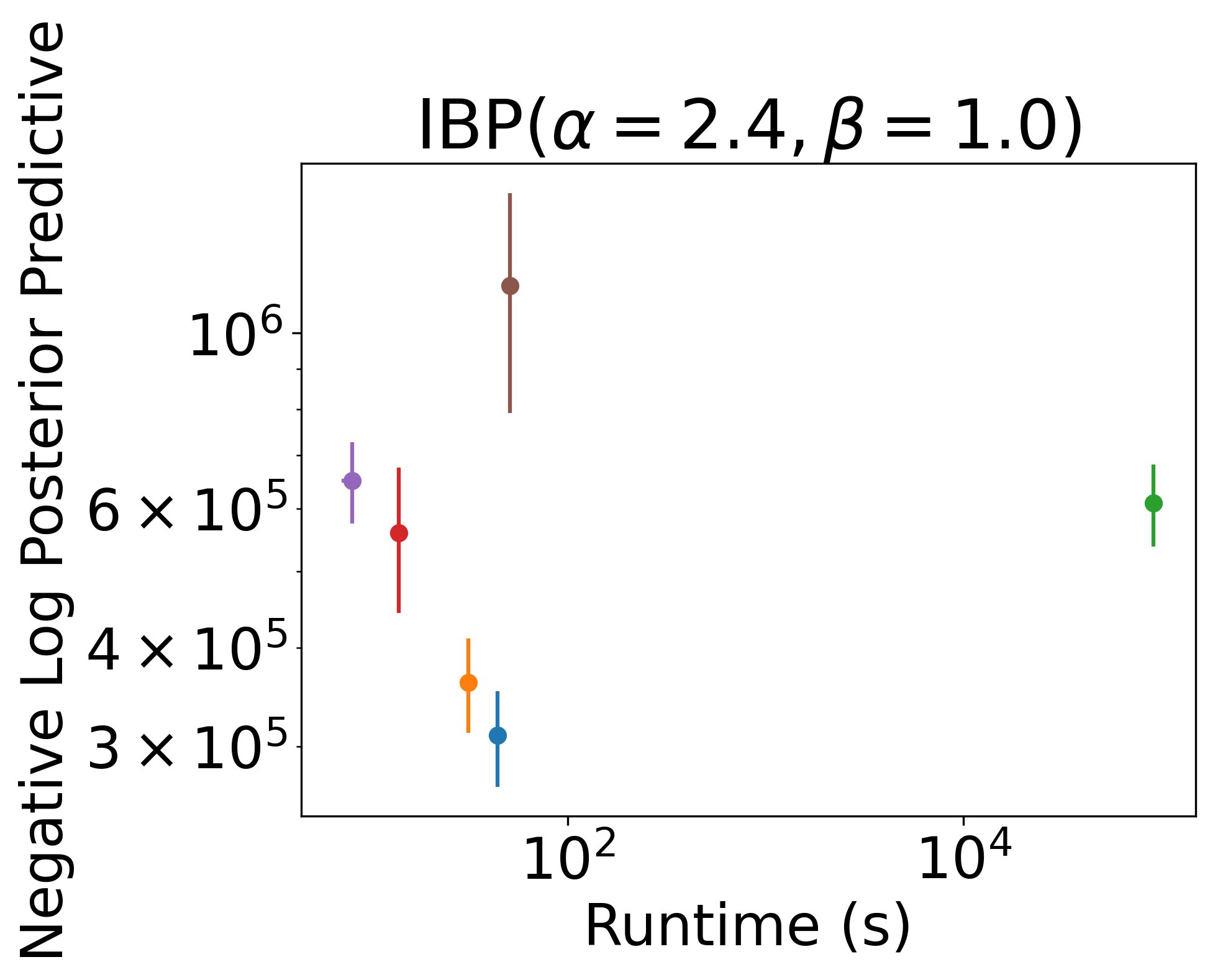
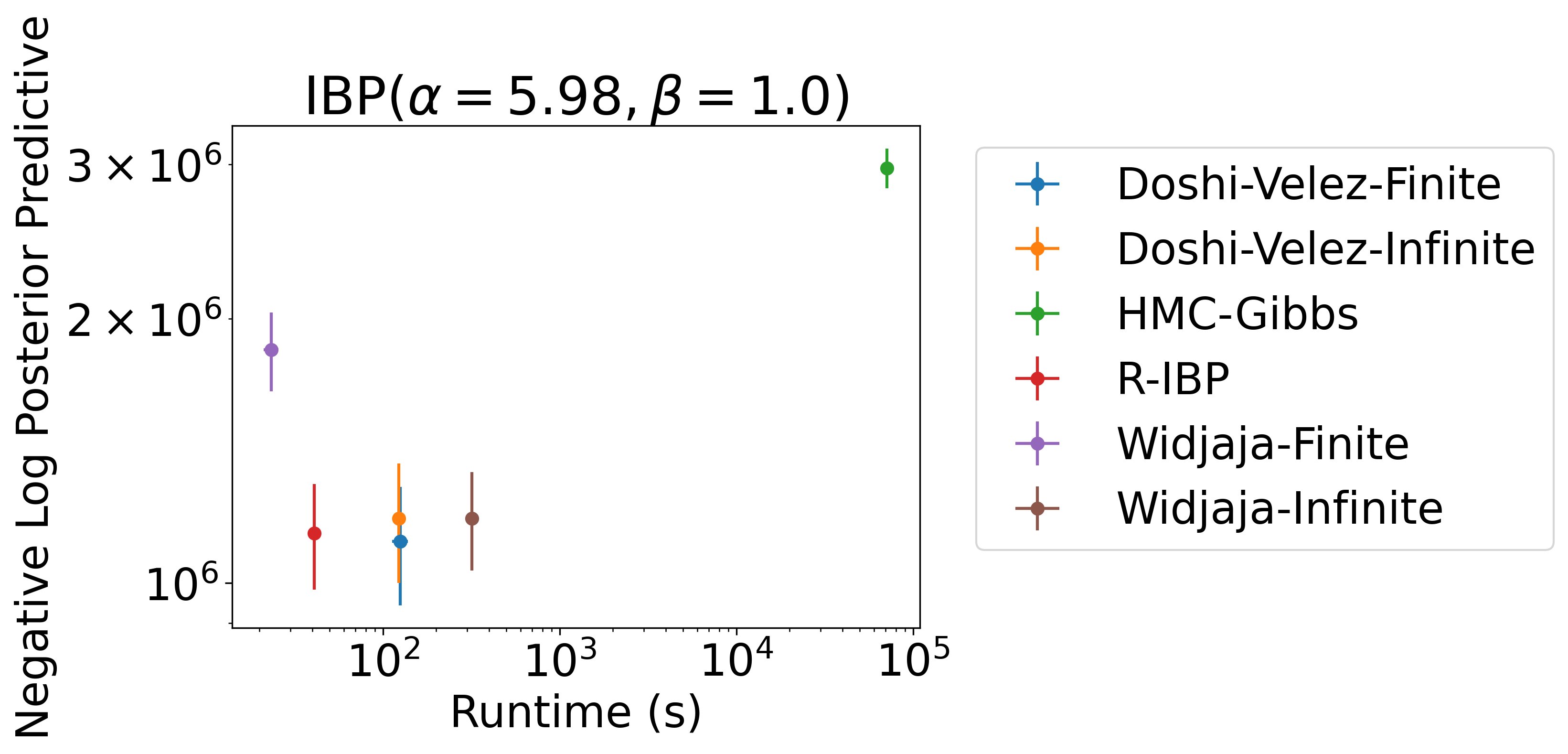
On real tabular data, the Recursive IBP again equals or outperforms many baselines (again, non-streaming) in significantly less time 9/12
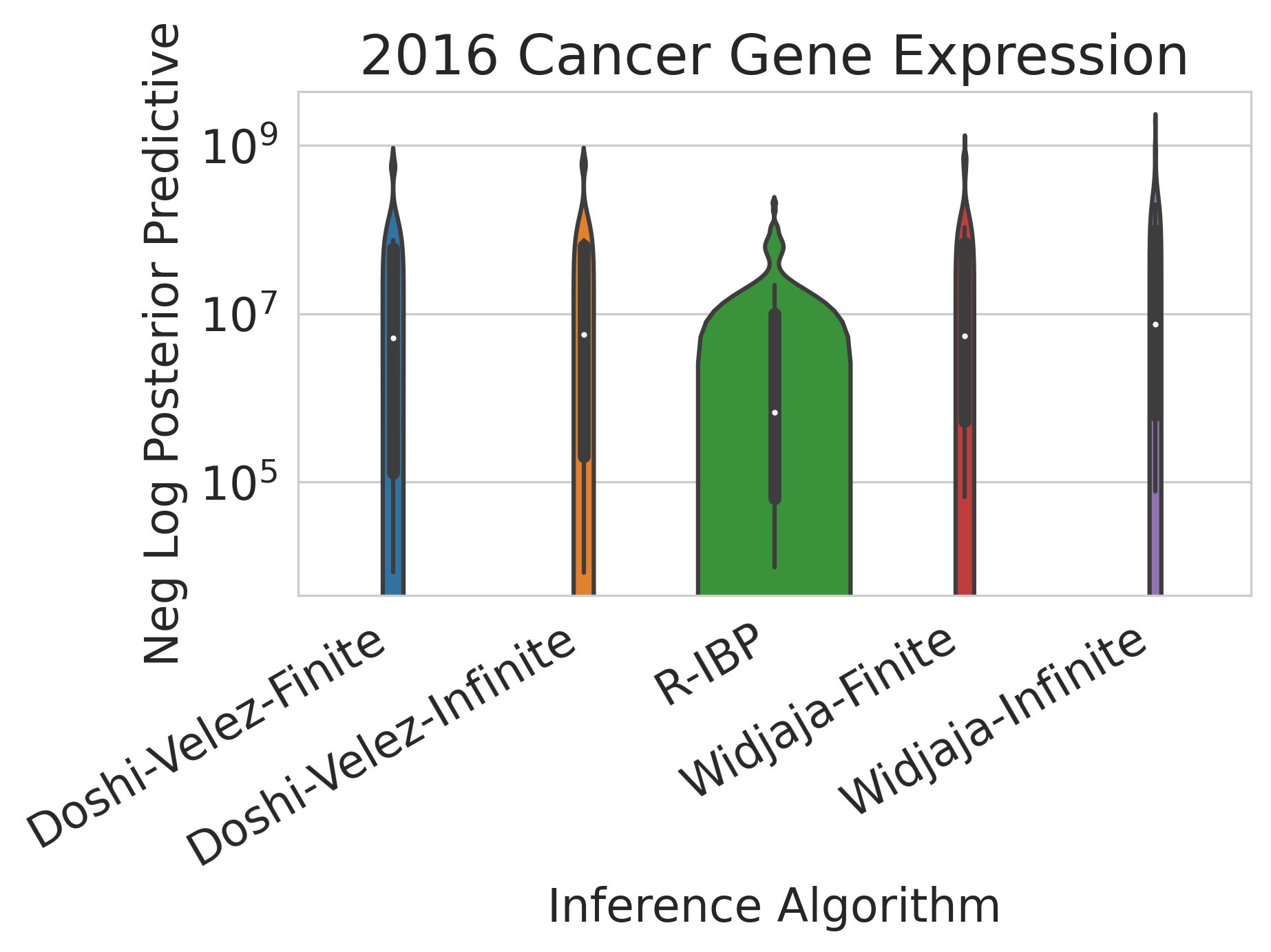
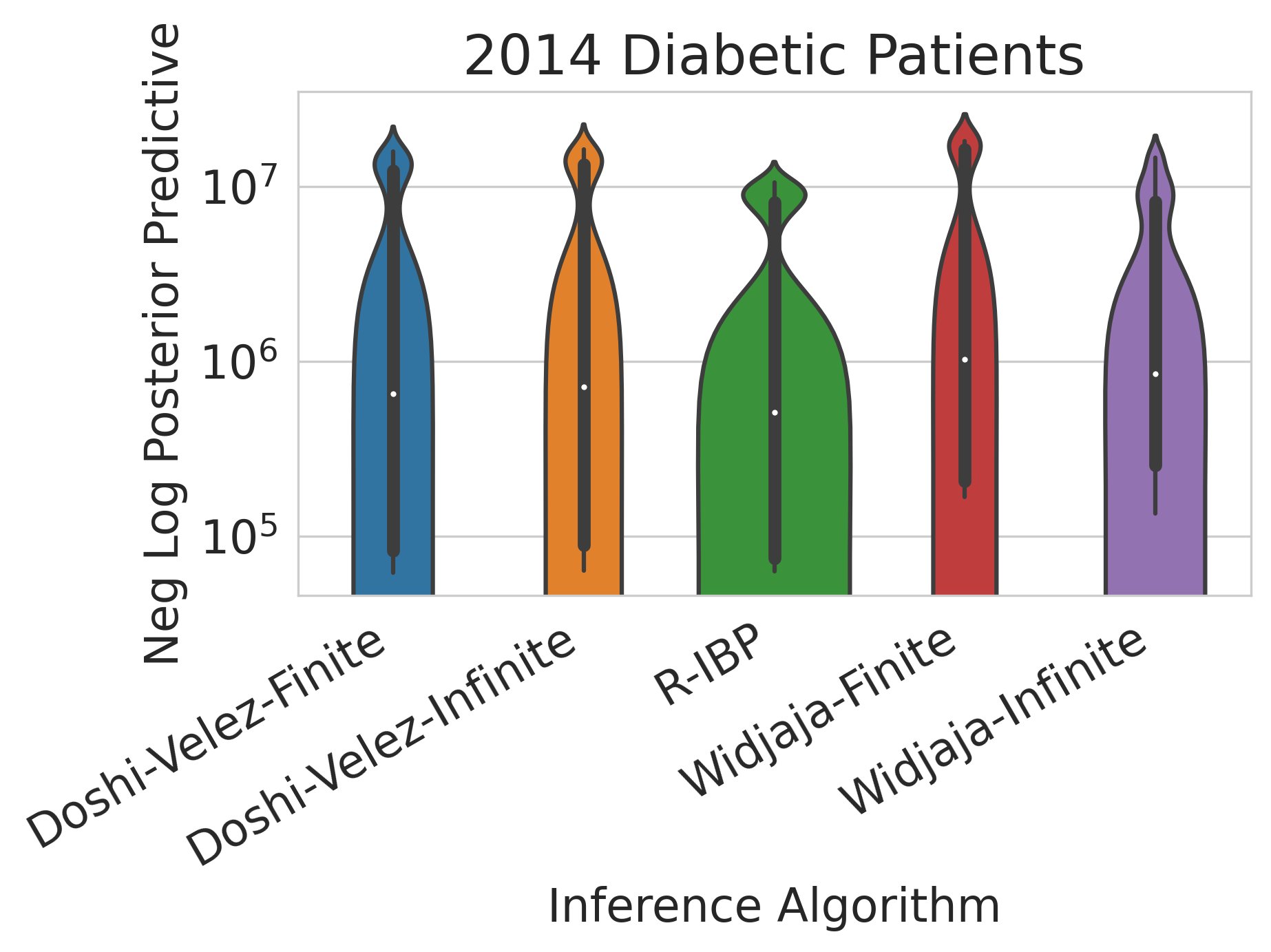
On the MNIST dataset, the Recursive IBP infers features whose class-similarities match those of a separate, independently-trained supervised deep network 10/12
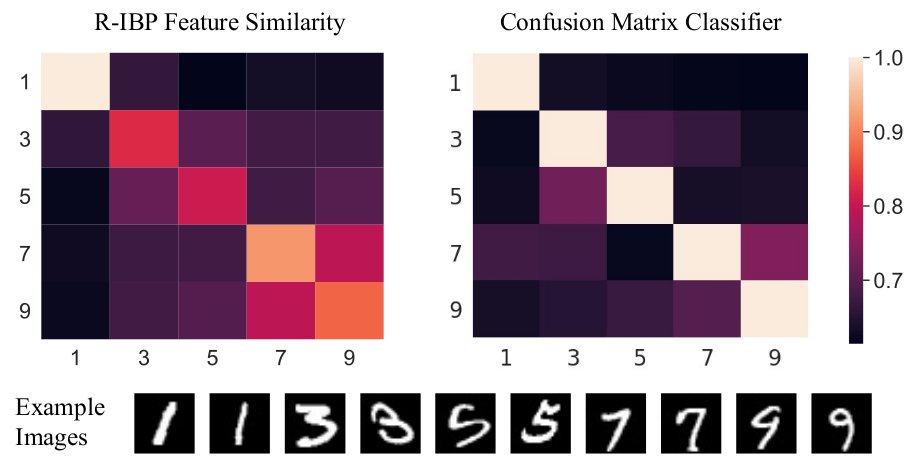
We end with a conjecture, that the Recursive IBP outperforms non-streaming offline baselines because its graphical structure avoids chain multiplying inferred variables, instead adding inferred variables to running sums 11/12

For any neuroscientists out there, we’re quite excited to show how the Recursive IBP can explain recent behavioral & neural experimental findings. Stay tuned! 12/12